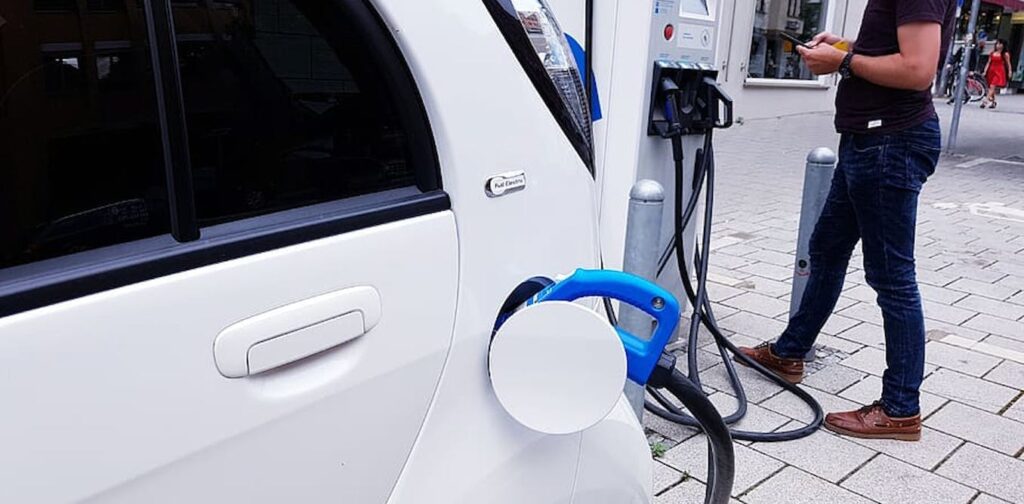Debate: The end of the internal-combustion car: why competition is vital to bringing about cleaner transport

On 7 March 2023, just as the European Council was preparing to vote on a ban on the sale of new internal combustion engine cars in Europe from 2035, something went wrong: Germany, whose vote was essential for the measure to be approved, and a coalition of six other European countries blocked the vote on the text, pushing the legislation back indefinitely.
A few days later, the European Commission, representing all the member countries, unveiled its response to the US Inflation Reduction Act (IRA), the Net-Zero Industry Act, a competitiveness plan based on accelerating the green transition.
Amid all the political back-and-forths, one would be forgiven for asking oneself whether Europe is making any progress with the green transition. It would appear the European Union (EU) has become Janus, with a pro-transition face and a procrastinating face, just as a pro-competition face contrasts with a protectionist face. The consequence of such contradictions is a loss of credibility when it comes to achieving its objectives, and a delay in the race toward ecological transition.
A lead to maintain
Yet the EU seemed well on the way to establishing itself as a world leader in the transition, with its dynamic green ecosystem made up of innovative businesses supported by the “European Climate Bank”, as the EIB (European Investment Bank) likes to call itself. At the end of February, the EIB reaffirmed its intention to champion green initiatives by channelling the vast majority of its funds toward the transition, beyond the already honourable level of 60% achieved by 2022.
The EU also seems to be particularly ahead of the game on green hydrogen, boasting a number of important projects of European interest (IPCEI), the world’s leading number of patents (ranking last January by the International Energy Agency) and an embryonic hydrogen bank.
You can find more infographics at Statista.
This position is confirmed by foreign investors who find themselves attracted to the bloc’s green policies and regulatory clout. Take the latest Border Carbon Tax Mechanism (CBAM), which is set to place a carbon price on imports entering the European single market from non-EU countries from this autumn: It is a textbook example of how to take into account negative ecological impacts while respecting competition thanks to the price signal. The recent revaluation of the price of a tonne of CO2 above 100 euros suggests that it will be very effective indeed.
That’s if we don’t undermine it with exemptions and deferrals sine die, or disguised pollution subsidies such as France’s energy “tariff shield”). According to the IEA, Europe spent nearly 350 billion euros on such measures in 2022 – a record high.
To give businesses and investors the certainty that the EU won’t be going backwards, we need to set clear, consistent targets and stick to them. It is essential to anchor players’ expectations on a fixed and certain horizon so that markets can be challenged, competition can be triggered, and private investment can flow. Any form of renunciation by the EU will discourage players from speeding up the transition and will cause those who were ahead of schedule in reaching the 2035 horizon to backpedal.
Avoiding “the tragedy of the horizon”
To remain competitive, French carmaker Renault has focused its clean-car strategy on its electricity division and split its activities into five divisions – Ampere (clean vehiciles), Power (thermal and hybrid motors), Alpine (sport), Mobilize (new forms of mobility) and The Future Is Neutral (circular economy). Power is intended to be supported in part by the profits from the project “Horse”, which involves a joint venture with the Chinese carmaker Geely.
Stellantis – the parent company of Chrysler as well as European brands such as Peugeot, Citroën, Fiat and and Alfa Romeo – has also positioned itself in the premium segment of the clean-car market, alongside other players such as Tesla of the US and French energy giant TotalEnergies, which is equipping its service station network with recharging stations. These moves demonstrate the decisive role of competition in developing a range of products and services in line with the imperatives of the energy transition.
[More than 85,000 readers look to The Conversation France’s newsletter for expert insights into the world’s most pressing issues. Sign up now]
Open markets allow new players to join or withdraw on terms that suit them, thus fostering competition and innovation. This virtuous circle is essential to overcoming the technological frontier of transition – the most advanced level of research at a given time – and get a jump on tomorrow’s solutions. In theory, an economy that’s open to competition leads to sophistication in the value proposition of offerings and to shared value for all: quality of service and lower prices to the benefit of demand greater returns on innovation and scale and attraction of scarce resources to the benefit of supply.
The longer the European Union postpones its objectives and gives in to protectionist pressures, the longer it will be locked into what former Canadian central banker Marc Carney has called the tragedy of the horizon, and so the more it will fall behind its rivals. The EU would benefit from remaining consistent with its founding principle of competition and its four fundamental freedoms (movement of goods, capital, services and people) to attract the capital needed for the transition and the infrastructure essential for its spread (such as electric charging stations) and acceptability.
At a time when the United States has strayed into protectionism, the EU must stand firm on its commitments and remain faithful to competition, the virtues of which will accelerate the transition and its spread with accessible solutions. It’s time to move on from “greenwishing”, as the American economist Nouriel Roubini called it ironically, to green-enacting thanks to a winning combination of competitiveness and attractiveness.







